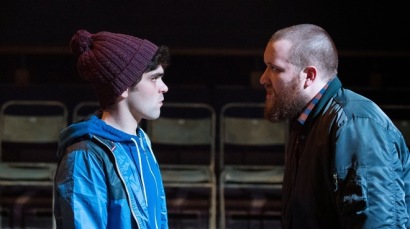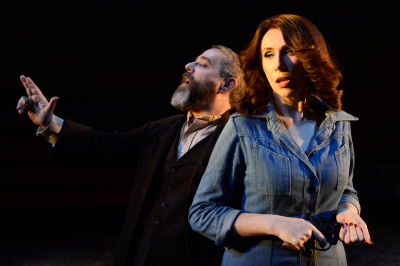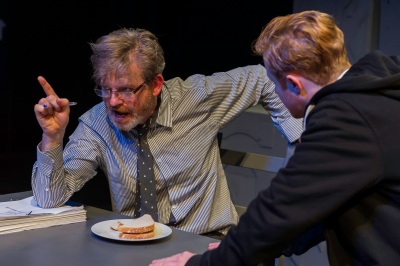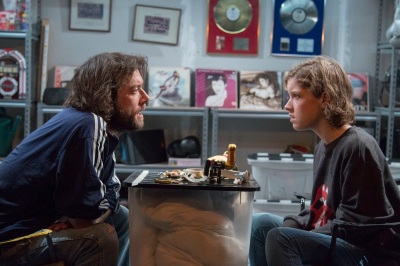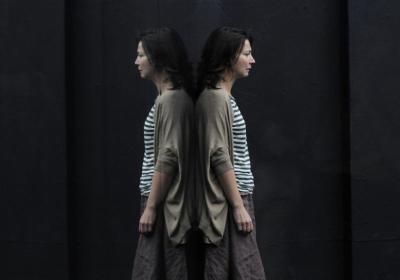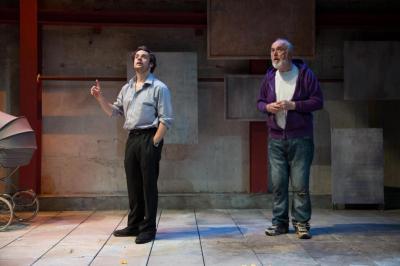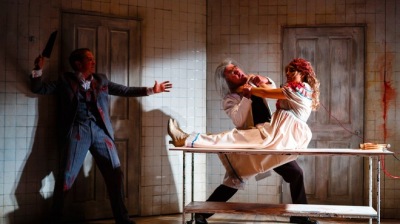
Fiona Button as Annabella, Max Bennett as Giovanni. Photo Simon Kane
Something happens twenty minutes into John Ford’s Tis Pity She’s a Whore, as performed at the Sam Wanamaker playhouse. Up until that point, I knew I was watching a hugely engaging production of a very fine play. Fluid, clear, intelligent. But at the beginning of the second act, in the scene where Giovanni and Annabella are in bed together, having made love for the first time, things are revealed for what they are. It’s not that the production changes gear, it is the audience catching up. The intense intimacy of falling in love ripples from stage to audience, tender, delicate, exposed to light – like camera film. Should we be here? Who is watching whom? And who is guilty of forbidden acts?
And then you get it. This production of Tis Pity She’s a Whore is going to be thrillingly hot. Not only in a high-minded way, or even in a carnal way – although both these are true – but forbidden, dangerous. The candlelight is fire and danger as much as it is shadows and trembling beauty. This is the achievement of Michael Longhurst’s production: without rewriting the play, he welds together themes of forbidden love with this cradle of a space, the breathing-fire quality of the text with feverish, sharp action. The result brims with exquisite life (and therefore death).
After that, everything falls into place and gains huge momentum. Max Bennett and Fiona Button, Giovanni and Annabella, brother and sister and lovers, fit perfectly and tenderly together, hands blindly seeking, breaths synching. It’s physics as much as anything else, bodies orbiting each other. Nature versus nature, sibling relationship versus cosmic powers. Continue reading →
